Latest updates: Carney announces removal of retaliatory tariffs on CUSMA-compliant U.S. goods

- Carney will maintain tariffs on steel, aluminum and autos as the Liberal government continues negotiations with the U.S.
- U.S. President Donald Trump commended the tariff removal, calling it "nice" and saying he wanted to "be good to Canada."
- Trump raised tariffs on some Canadian goods to 35 per cent on Aug. 1.
- The Trump administration said Canada's rate was being hiked in response to fentanyl trafficking and Canada's earlier decision to hit back with counter-tariffs.
- Michael Woods
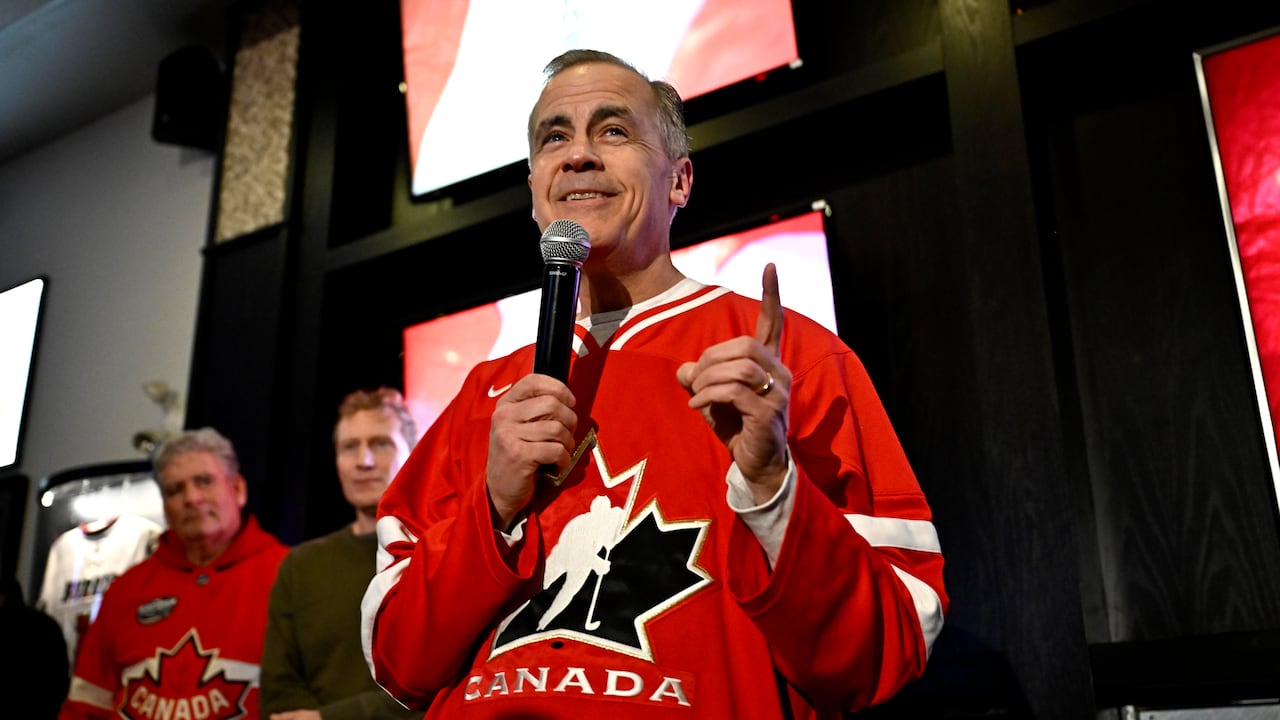
When he was running for Liberal leadership and during the election campaign, Carney often would use hockey metaphors in his speeches. (Justin Tang/The Canadian Press) I’m Michael Woods, the digital senior producer for the Parliament Hill bureau.
Hockey has been a through line for much of Carney’s political career so far.
He launched his Liberal leadership campaign next door to the rink where he grew up playing hockey. During the federal election campaign, his most-talked-about ads were the “elbows up” commercials with Canadian actor Mike Myers — shot at a hockey rink.
Today was no exception. When a reporter pointed out to him that his critics would see today’s announcement as an “elbows down” approach, the former college hockey goalie was happy to bring things back to the arena.
“I’ll take your analogy,” he said (although it’s certainly more his analogy). “I have played some hockey over the years.”
“There is a time in a game … when you go hard in the corners, you’re elbows up. There’s a time in a game when you drop the gloves in the first period and send a message. And we’ve done that,” he said.
“But there’s also a time in a game where you want the puck, you want to stickhandle, you want to pass, you want to put the puck in the net … and we’re at that time of the game.”
Carney has to hope this message resonates with Canadian voters, many of whom elected him because they felt he was best suited to deal with the Trump tariffs.
- John Paul Tasker
It's quite striking how differently Trump speaks of Carney compared to his predecessor, Justin Trudeau.
Over the years, the U.S. president called Trudeau "two-faced," mocked him as the "governor" of the "great state" of Canada and called him and his former deputy, Chrystia Freeland, "nasty" negotiators. It wasn't pretty.
While things have been tense at times as the two sides hash out some sort of trade agreement, Trump has always shown Carney some deference. He hasn't subjected him to that sort of invective that was a hallmark of the Trump-Trudeau relationship.
In their Oval Office meeting in May, just days after the last federal election, Trump said he was happy to see Trudeau gone and the country in Carney's hands now. "This is a big step up for Canada," the president said of Carney. "It's a good step up for Canada."
Trump was on the same message track today, saying he likes the PM "a lot." He says Carney is a "good person" and they've had fruitful conversations, including one yesterday. He said there will be more talks to follow as the two sides continue to work something out on trade.
The question is: what exactly has this gotten Canada?
We're still dealing with crippling tariffs, particularly on the steel, aluminum, auto and lumber sectors.
Carney argued today that, while it may seem bad, Canada is in a comparatively good position when it comes to tariffs. Most of our goods — about 85 per cent, he says — are traded tariff-free thanks to Trump's CUSMA exemptions. Our effective tariff rate is a fraction of what other countries are facing.
Carney suggested that's because he's willing to play ball with Trump. "That puts us in a good position for the next phase of the negotiations."
- Mike Crawley
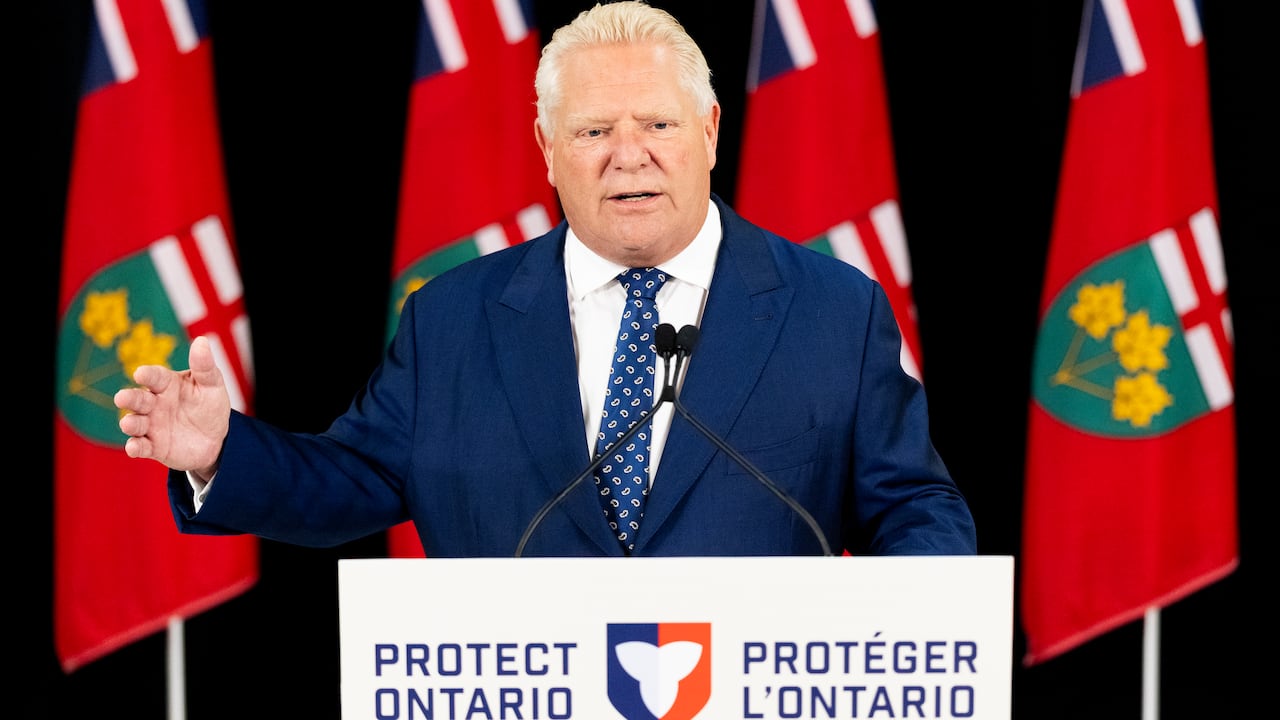
Ontario Premier Doug Ford speaks to the media during a funding announcement in Hamilton on Wednesday. (Carlos Osorio/The Canadian Press) Ontario Premier Doug Ford is taking a slight step back from his long-running insistence on retaliatory tariffs. Now Ford is making it conditional.
Ford says he spoke with Carney following the prime minister’s announcement to “stress the need for an agreement with the United States that provides relief to our tariff-impacted sectors, including steel, auto, forestry and copper.
“If the federal government can’t achieve that, they need to hit back hard against U.S. tariffs and provide additional supports for the workers and businesses in these sectors.”
The Ontario premier also said the federal government “needs to move fast to ensure Ontario steel is helping to build the future of Canada.
“Everything we make in Canada from ships, military equipment, pipelines to every piece of infrastructure should be made using Ontario and Canadian steel,” said Ford.
- Ian Froese
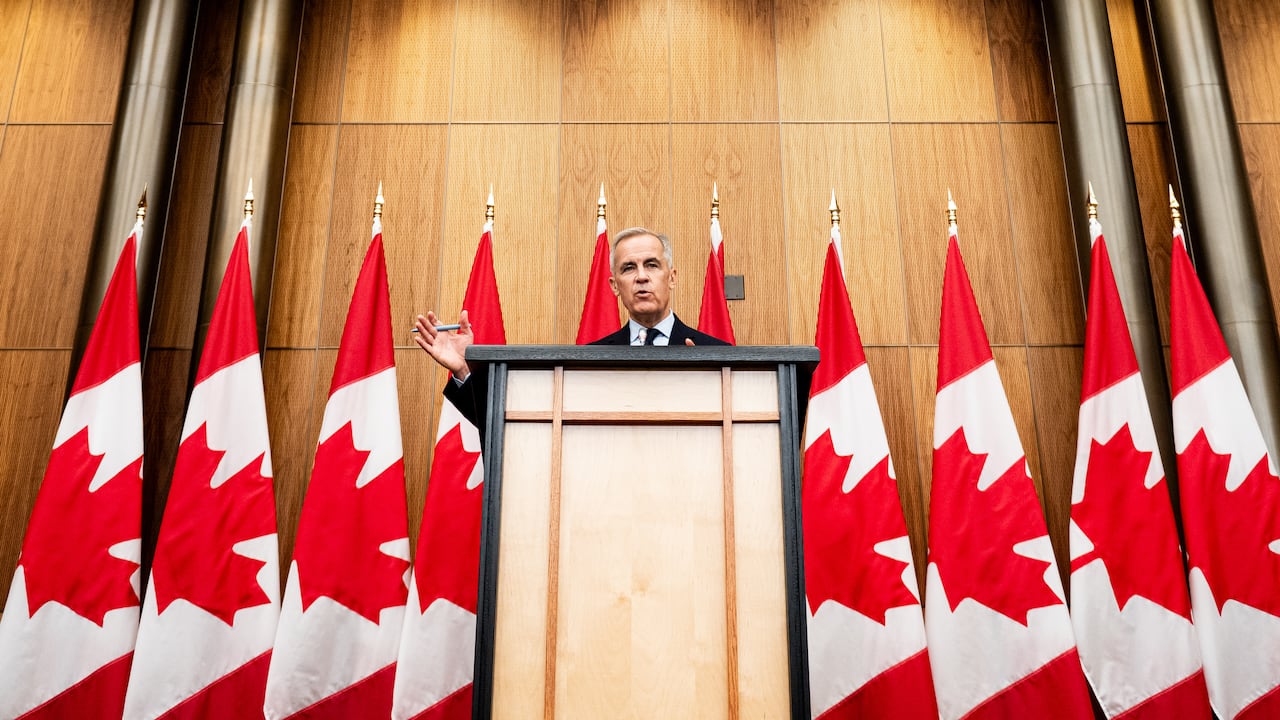
Prime Minister Mark Carney said Friday that removing some retaliatory tariffs is the best approach for Canada at this stage in the trade war. (Spencer Colby/The Canadian Press) At the news conference, reporters asked if Carney’s trade moves will be perceived as weakness against a U.S. government that has wounded Canada’s economy. Carney argued Canada still has a “better deal” with the U.S. than other countries.
He said Canada must protect the economic arrangement it already has with the U.S., even if the current relationship leaves a lot to be desired.
“Let’s be absolutely clear: Canada currently has the best trade deal with the United States. While it is different from what we had before, it is still better than that of any country.”
“Different” is an understatement. Punishing U.S. tariffs on steel, aluminum, autos, copper, lumber and energy remain, but Carney noted the United States has exempted goods compliant with the Canada-U.S.-Mexico Agreement from similar levies.
In an act of goodwill, Canada is matching those exemptions by removing tariffs from CUSMA-compliant U.S. goods.
The prime minister added that the overall U.S. tariff rate on Canadian goods is currently 5.6 per cent, lower than the average 16 per cent rate other countries are facing.
- John Paul Tasker
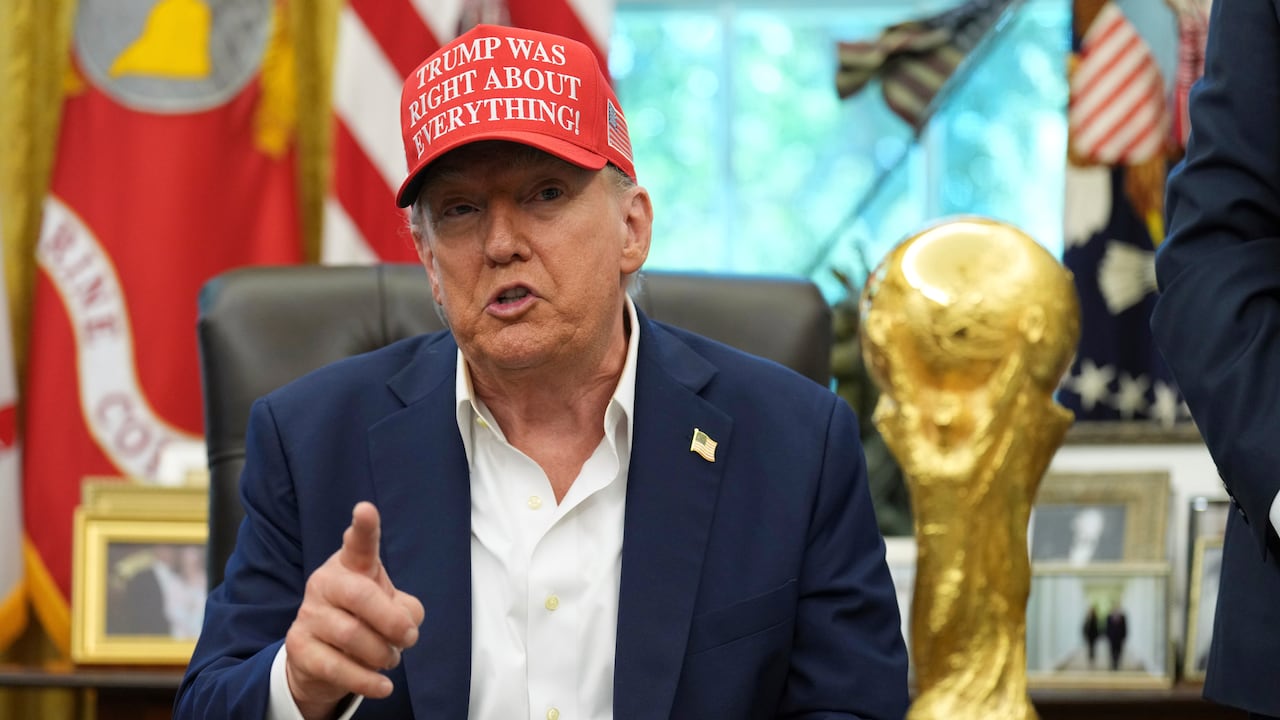
Trump said Friday that he likes Canada, but is fighting for the U.S. (Jacquelyn Martin/The Associated Press) I’m J.P. Tasker, a senior reporter currently in D.C.
"I think he's a good person and we had a very good talk. I think it will be good," Trump said at an unrelated announcement on the World Cup.
Since Carney's election, Trump has been quite complimentary of the prime minister — even as the two sides struggle to land on a mutually agreeable trade pact.
But he reiterated the central argument of his tariff agenda: he wants more business in the U.S., and if that comes at the expense of Canada and Mexico, so be it.
"Canada and Mexico has taken a lot of our business over the last 25 to 30 years," he said.
- Verity Stevenson
Trump has just addressed Canada’s decision from the Oval Office.
He acknowledged Carney's move, saying he thought it was "nice."
The president said he and Carney had a "very good call" yesterday and that the two leaders would have another call soon.
"I like him. I like him," Trump said, adding he wanted "to be good for Canada" but that he's "fighting for the U.S." and that "business is coming back" to his country thanks to tariffs he's imposed on goods from countries around the world.
- Mike Crawley
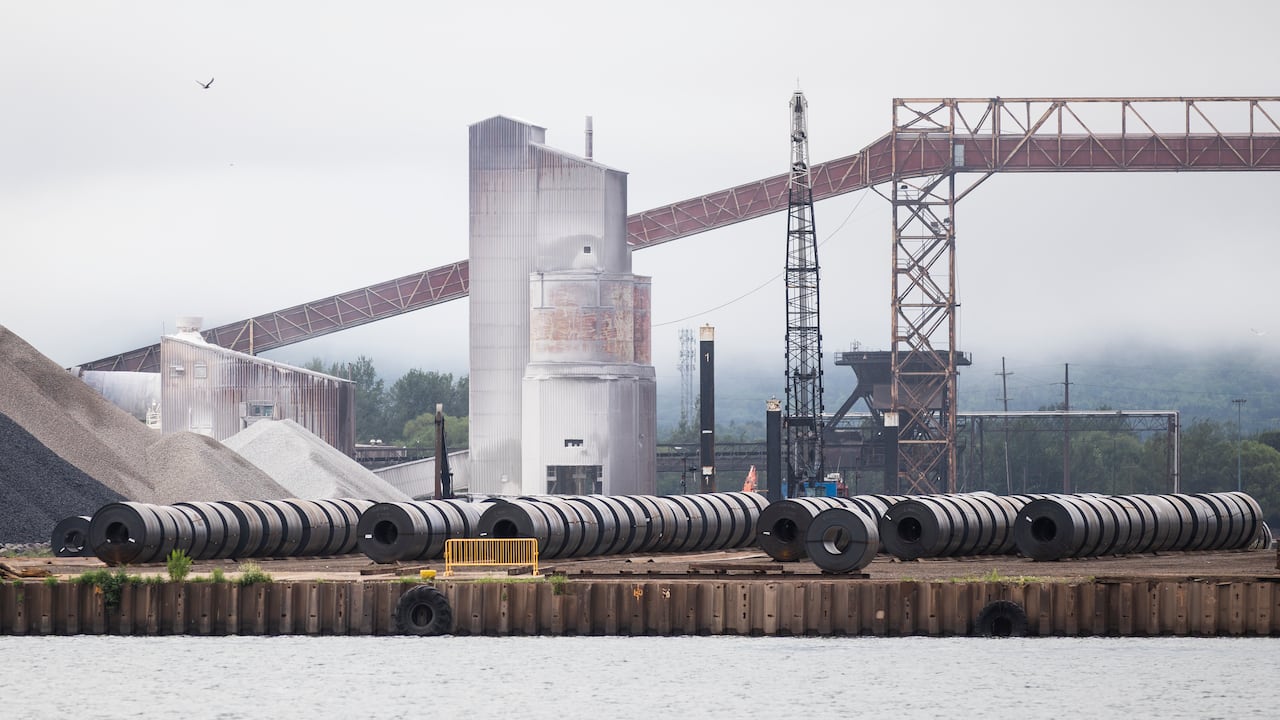
Rolled coils of steel sit in the yard at Algoma Steel Inc., the second largest steel producer in Canada, along the St. Marys River in Sault Ste. Marie, Ont., on July 24. (Nick Iwanyshyn/The Canadian Press) Carney is scrapping one specific set of retaliatory tariffs: the ones Canada imposed in response to Trump’s fentanyl tariffs.
Those U.S. tariffs only apply to a small portion of Canadian exports because all goods that comply with CUSMA rules of origin are exempt.
Carney is describing today’s move as matching that U.S. exemption.
Here’s a guide to what makes an export CUSMA compliant, describing what the exemption means for Canada’s trade with the U.S.
- Ian Froese
Asked if Canada is now 'elbows down,' Prime Minister Mark Carney says the country has 'the lowest tariff rate on average' after showing it's willing to fight. But he says this is a 'big game' that has now moved to a different stage.
The prime minister is standing by the “elbows up” posture he repeated regularly during the recent election campaign, but he’s now saying there’s a time in every “big game” when strategies change.
“I have played some hockey over the years,” Mark Carney said.
There’s “a time in the game that you drop the gloves in the first period and you send a message — and we have done that. Pretty uniquely in the world,” he said, pointing to Canada’s choice to hit back with counter-tariffs — an action most U.S.-targeted countries avoided.
“But there's also a time in a game where you want the puck, you want to stickhandle, you want to pass, you want to put the puck in the net … we're at that time in the game and that's where the engagement is.”
Carney made these remarks after a reporter said the prime minister’s critics would suggest Canada is effectively taking an “elbows down” approach to the trade war.
- Mike Crawley
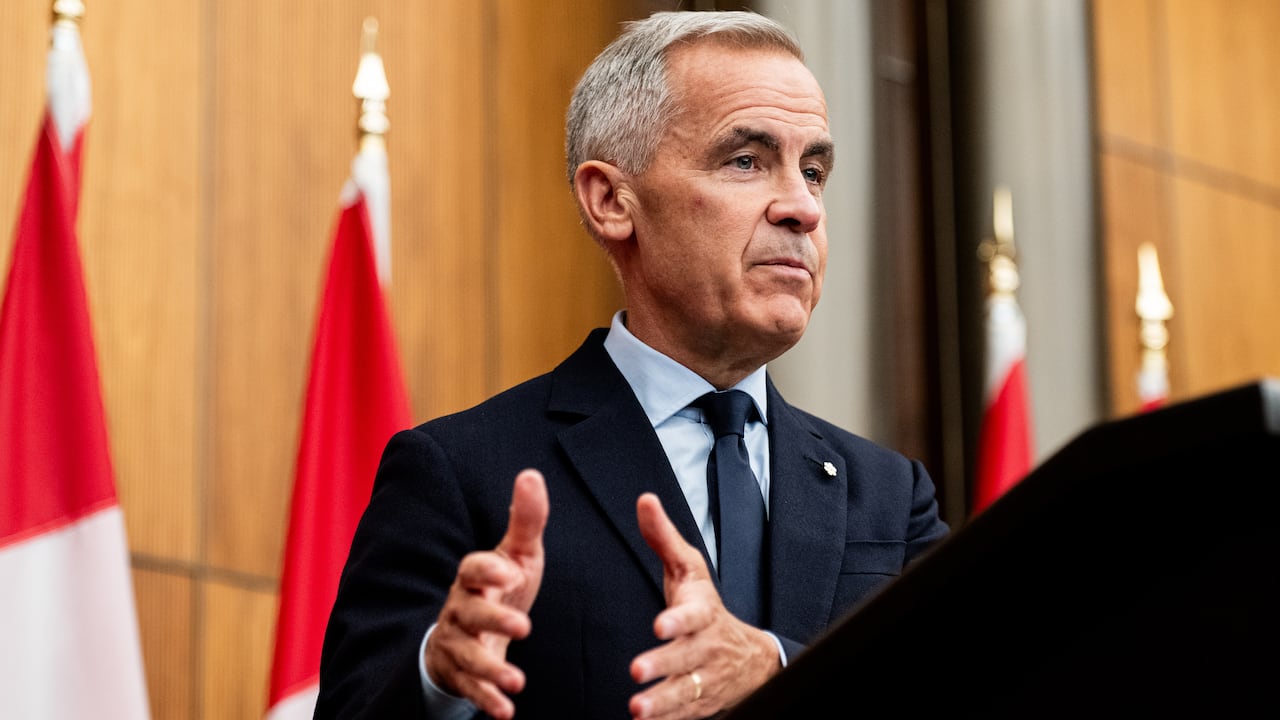
Prime Minister Mark Carney speaks during a news conference at the National Press Theatre in Ottawa on Friday. (Spencer Colby/The Canadian Press) I’m a senior reporter for CBC News, soon to be posted to Washington.
During his news conference, Carney really leaned into the exemptions Canada is getting from Trump’s tariffs to justify his moves.
Trade expert Laura Dawson says Carney is ensuring that what she calls “Canada’s CUSMA advantage” remains sacrosanct.
“It is not necessary that Canada retains free trade with the United States,” said Dawson, executive director of the Future Borders Coalition, an organization focused on Canada-U.S. trade relations.
Dawson told Power & Politics host David Cochrane that maintaining better trade access to the U.S. than anyone else is what Canada needs.
She used the analogy of people running away from a bear. “Canada does not need to be the fastest runner,” she said. It just needs to be able to outrun others.
- Verity Stevenson
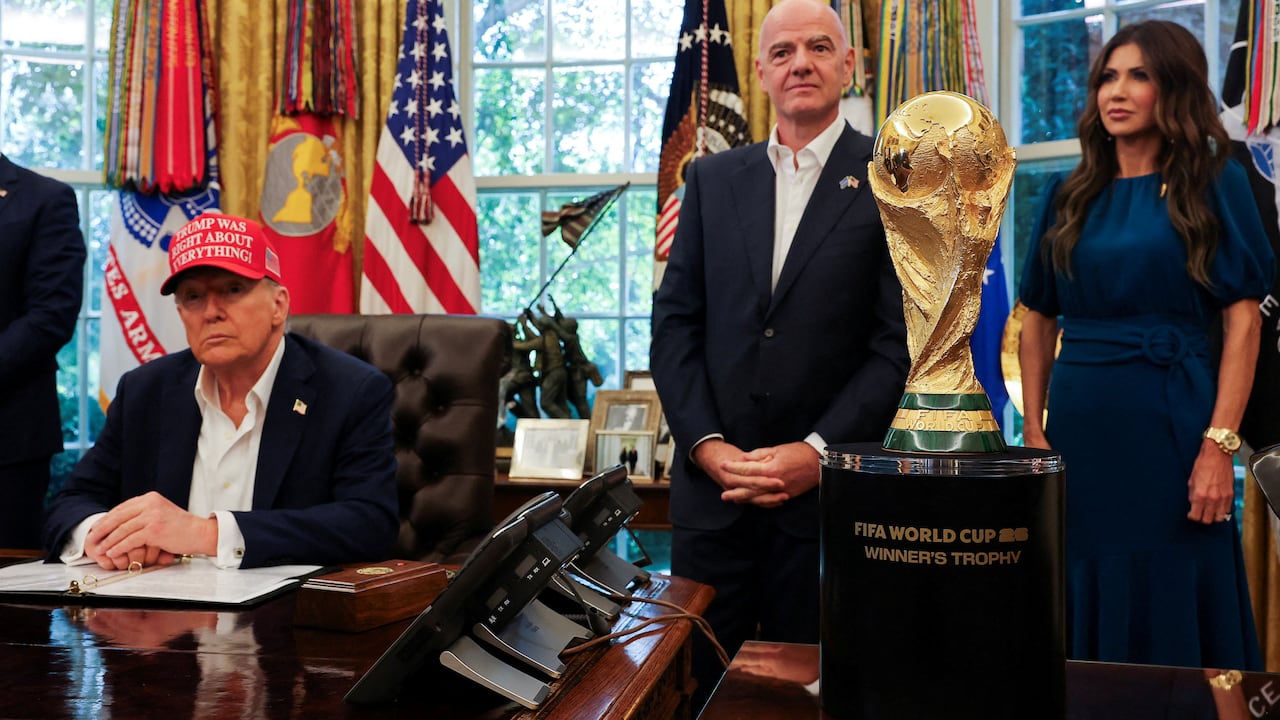
U.S. President Donald Trump was wearing a hat that said 'Trump was right about everything' on Friday afternoon. (Jonathan Ernst/Reuters) U.S. President Donald Trump hasn't yet commented on the move by Canada. He is taking questions in the Oval Office on an unrelated matter, wearing a red hat that says "Trump was always right about everything." Officials from his administration had repeatedly said Canadian retaliatory tariffs on U.S. goods were an irritant in negotiations.
cbc.ca





